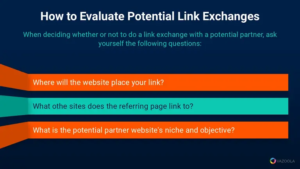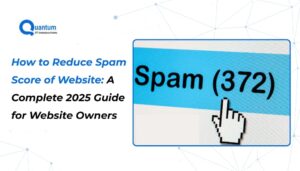How to effectively use informational keywords to boost your website traffic with examples
Informational keywords are certain terms or phrases that people employ in search engines to find information or solutions to their problems. By thoughtfully adding these keywords to the content of your website—you can establish yourself as an invaluable resource in your area and draw targeted visitors from search engines.
– 14 mins

In the current digital era, increasing website traffic is essential for creating an online presence, building brand recognition, and eventually realizing your company objectives. While there are various ways to do this, one effective method is to use informative keywords.
The key to using informational keywords is understanding your target audience’s needs and aligning your content with their interests. Users searching for information expect to find helpful and informative content that addresses their questions.
By optimizing your website with high-quality, relevant content centered around informational keywords—you can increase the chances of a higher ranking in search engine results pages (SERPs) and drive more organic traffic to your site.
Let us walk you through some essential tips and insights on using informational keywords to boost your website traffic effectively. Whether you’re an experienced website owner or new to the game, this blog will equip you with the know-how and tools to leverage informative keywords and enhance the value of your site visitors. But before we delve deeper, let us first understand what informational keywords are.
Let’s dive in!
Understanding informational keywords
Informational keywords are specific words or phrases that people use on the internet to look for information or get responses to their questions. These search engine query terms are often used and are very important in establishing the purpose of a user’s search. Informational keywords center on learning about or comprehending a certain topic, as opposed to transactional or navigational keywords, which are focused on making a purchase or traveling to a specific website.
Words that assist in describing the subject matter of a piece of information are known as informative keywords. They can be employed to describe a piece of writing’s subject, a conversation’s topic, or the area of interest in a research endeavor.
Typically—informational keywords start with a question word like “what,” “why,” “how,” or “where,” or they contain phrases like “tips for,” “benefits of,” or “guide to.” For instance:
- What is yoga?
- How to bake a cake?
- What is climate change?
These search terms suggest the visitor seeks articles, tutorials, guides, or explanations.
From an SEO (Search Engine Optimization) perspective, incorporating relevant informational keywords into website content can help attract organic traffic, as search engines aim to provide users with the most relevant and informative results. By understanding and targeting these keywords, content creators and marketers can optimize their websites and resources to meet users’ informational needs effectively.
Why are Informational Keywords Important?
Informational keywords play a crucial role in online search and content creation. These keywords are vital for effective information retrieval and can significantly impact SEO strategies. They provide valuable insights into user intent and help drive targeted traffic to websites.
Here are several reasons why informational keywords are important:
User intent understanding
Marketing professionals and content creators may better understand user searches by using informational keywords. These keywords may be examined to identify the precise information consumers seek, and then the content can be created appropriately. By creating interesting and relevant information that meets users’ demands, it is possible to improve the user experience and engagement.
SEO strategy
Informational keywords are more visible in search engine results pages (SERPs) when used in the website content. Websites can improve their chances by optimizing their content with relevant keywords To boost their rankings in search engine results pages (SERPs). Search engines strive to give consumers the most pertinent information possible. As a result, organic traffic rises, the website’s audience grows, and its overall exposure is enhanced.
Content creation
By offering knowledge about popular subjects and trends, informational keywords help direct content production. These keywords may be examined to find content gaps and generate new content concepts. Websites will draw in and keep a wider audience, create authority in their industry, and encourage brand loyalty by creating high-quality educational material that is in line with informational keywords.
Targeted traffic
Informational keywords draw visitors who are actively looking for details on particular subjects. Websites may generate targeted traffic and ensure that the relevant audience sees their platform by aligning content with these keywords. A targeted audience is more likely to interact with the material, become leads or clients, and support the success of the website.
Long-tail keywords
Informational keywords often take the form of long-tail keywords, which are more specific and less competitive than generic keywords. Long-tail keywords have lower search volumes but higher conversion rates. By targeting these keywords, websites can reach a more focused audience and increase the chances of conversion.
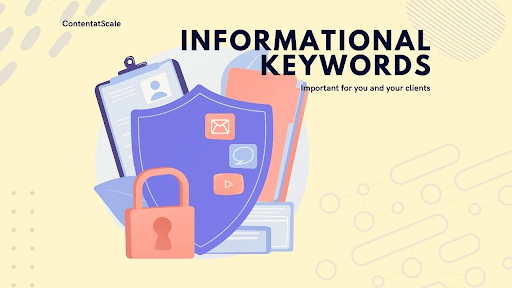
How to use informative keywords to increase traffic to your website
Keyword research plays a crucial role in driving organic traffic to your website. Understanding the intent behind users’ search queries allows you to optimize your content with relevant keywords to attract the right audience. Informational keywords, in particular, can be a powerful tool in boosting your website traffic.
Let us explore effective strategies to leverage informational keywords and drive traffic to your site.
1. Optimize web pages
Informational keyword optimization may make your website’s content and pages more visible in search results. Use keywords sparingly in your article. Instead—you should figure out how to naturally include them in your site text. This is made easier by adding keywords to particular site areas. Consider including informative keywords in title tags, meta descriptions, URLs and headlines.
Search engines use all of these organic elements to comprehend your content better. Informational keywords in these places give the search engines more context about the page or content, enabling them to match each one with the appropriate search intent.

2. Optimize for featured snippets
Using informational keywords in your content can help you target featured snippets. These features appear at the top or sides of a SERP to give searchers quick information about a topic. When creating content, it’s beneficial to aim for featured snippets as they are displayed above organic search results. This means that the information in a featured snippet is the first aspect people see on the SERP before any other content.
Informational content will likely get pulled for featured snippets that give definitions and actionable steps or that answer questions. Featured snippets are concise, informative summaries displayed at the top of search results. These snippets aim to answer users’ queries directly. Optimize your content to enhance the chances of appearing in featured snippets by structuring your content in a question-and-answer format, providing clear and concise answers, and using proper header tags.

3. Understand user intent
Once you have a list of informational keywords, it’s essential to understand the intent behind each query. Analyze the search results for those keywords and observe the type of content that ranks highly. Are users looking for step-by-step tutorials, comprehensive guides, or informative articles? Understanding user intent will help you create content that aligns with their expectations.

4. Create high-quality content
Develop informative and engaging content that addresses the user’s query comprehensively. Create blog posts and articles that provide valuable insights, practical tips, or detailed explanations. Break down complex concepts into easily digestible sections, and include relevant visuals like images, charts, or infographics to enhance the content’s appeal.
When creating a piece of content using informational keywords, it’s crucial to consider what your audience wants to learn and what they are already aware of. You may need to tailor your specific keywords based on your industry, audience’s interests or problems, and products or services.
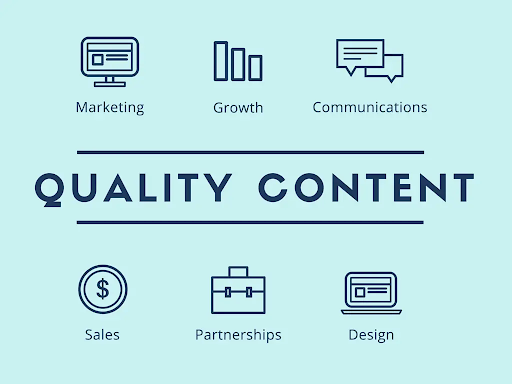
5. Optimize your content
To optimize your content strategically incorporating informational keywords, use the primary keyword in the title tag, meta description, headings, and throughout the body of the text. However, ensure that the keywords are used naturally and do not disrupt the flow of the article. Focus on creating content that genuinely helps and educates your audience.

6. Utilize long-tail keywords
Long-tail keywords are longer and more specific phrases with lower search volumes but higher conversion potential. Incorporate long-tail informational keywords into your content to attract highly targeted traffic. These keywords often indicate that users are in the research or consideration phase of their purchasing journey, making them more likely to engage with your content.

7. Leverage content formats
Informational keywords can be effectively utilized across different content formats. Consider creating videos, podcasts, or webinars that cater to users seeking information. Video tutorials or audio guides can attract a different audience segment and help with SEO, as search engines often rank multimedia content highly.

8. Internal linking
Implement a strong internal linking strategy to guide users to other relevant pages on your website. When creating content targeting informational keywords, include links to related articles or resources on your site. This enhances the user experience by providing more information and helps search engines discover and index your content.
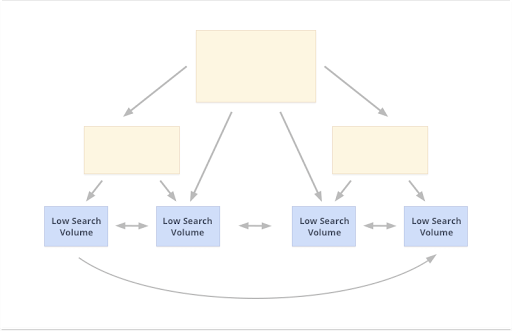
9. Promote and share
Once you’ve created high-quality content targeting informational keywords, promote it across various channels to maximize its reach. Share your articles on social media platforms, email newsletters, or industry forums. Engage with your audience, answer their queries, and encourage them to share your content with others. This amplification can lead to increased visibility and drive more traffic to your website.
10. Answer frequently asked questions (FAQs)
Research common questions related to your industry or niche and create content that provides concise answers. Develop dedicated FAQ pages or include an FAQ section within your articles. By addressing frequently asked questions, you can target informational keywords and position yourself as an authoritative source of information.
20 examples of Informational keywords
Informational keywords are being searched for by people who want to learn more, not buy something. Use questions or sentences that include the words ‘who’, ‘what’, ‘when’, ‘where’, ‘why’, and ‘how’, in addition to general phrases—if you wish to speak to your audience.
Your list of informational keywords for a sporting goods example may include things like:
- Sports equipment list
- Importance of sports equipment
- What are the trends in the sporting goods industry?
Here are 20 examples of informational keywords with elaborations:
- Definition—This keyword signifies the intention to clearly and concisely explain a specific concept or term. It aims to offer a fundamental understanding of the subject matter by providing a precise definition, often including its key associated characteristics or attributes.
- How to—This keyword indicates that the content will provide step-by-step instructions or guidance on completing a particular task or achieving a specific goal. It offers practical advice, tips, and techniques to assist readers in implementing the outlined process successfully.
- Benefits—When this keyword is used, the content highlights the advantages or positive outcomes of a particular product, service, or practice. It emphasizes the value or usefulness of the subject matter and explains how it can improve the reader’s life or address their needs.
- History—This keyword indicates that the content will present a chronological account of past events related to a specific topic. It aims to provide an overview of the subject’s evolution, milestones, key figures, and significant developments that have shaped its present state.
- Statistics—When this keyword is used, the content includes numerical data or figures that quantify and represent information. It often involves the analysis and interpretation of data to support arguments, illustrate trends, or provide evidence for specific claims.
- Causes—This keyword focuses on exploring the reasons or factors behind a certain event, phenomenon, or occurrence. The content aims to provide insights into the underlying causes that contribute to the subject matter, offering a deeper understanding of its origins or triggers.
- Trends—When this keyword is used, the content examines patterns or developments over time related to a particular subject or industry. It explores the direction or movement of the topic, highlighting emerging patterns, shifts, or popular practices.
- Types—This keyword indicates that the content will categorize a subject or topic into distinct classifications or groups based on specific criteria or characteristics. It helps readers understand the different variations or forms of the subject matter and highlights their unique attributes.
- Components—When this keyword is used, the content breaks down a complex entity into individual parts or elements. It explains each component’s role, function, or significance, providing a holistic understanding of how they work together.
- Impacts—This keyword explores the effects, consequences, or influences a specific event, action, or decision can have on individuals, society, or the environment. The content analyzes the outcomes or changes resulting from the subject matter, addressing its broader implications.
- Steps—When this keyword is used, the content outlines a sequence of actions or procedures to follow to achieve a desired goal or complete a task successfully. It provides a structured approach, guiding readers through each step and ensuring a systematic implementation.
- Risks—This keyword identifies and evaluates potential dangers, hazards, or uncertainties associated with a particular activity, product, or situation. The content aims to raise awareness about potential risks, allowing readers to make informed decisions and take necessary precautions.
- Examples—When this keyword is used, the content provides specific instances or illustrations that clarify a concept or demonstrate how something works in practice. It includes real-world scenarios, case studies, or anecdotes that help readers visualize the subject matter and understand its application.
- Process—This keyword indicates that the content will explain the step-by-step procedures or methods involved in completing a task or achieving a desired outcome. It breaks down the process into manageable stages, offering guidance and clarity on each step.
- Laws and Regulations—When this keyword is used, the content focuses on discussing the legal frameworks, rules, or guidelines that govern a specific area or industry. It explains the applicable laws and regulations, their purpose, and their implications for individuals or organizations.
- Comparisons—This keyword is used when the content aims to draw similarities and differences between two or more entities. It highlights the distinct characteristics or features of each entity, enabling readers to understand their similarities, contrasts, or relative advantages.
- Applications—When this keyword is used, the content explores the practical uses or real-world scenarios where a particular concept, technology, or methodology can be implemented. It showcases how the subject matter can be applied in various contexts, industries, or situations.
- Emerging Technologies—This keyword indicates that the content will explore cutting-edge advancements or innovations in science, technology, or industry. It highlights new possibilities, trends, or breakthroughs, providing insights into the field’s potential impacts and future developments.
- Historical Context—When this keyword is used, the content places a subject or event within its historical framework. It provides background information, including the historical context, circumstances, and significance surrounding the subject matter.
- Facts—This keyword indicates that the content will present verifiable information or statistics about a specific topic. It aims to provide objective knowledge by offering facts, figures, or data that can be supported and verified through credible sources or research.
Wrapping up
Leveraging informational keywords can significantly enhance your website’s traffic when used effectively. By understanding your target audience’s search intent and crafting high-quality, informative content around relevant keywords, you can attract and engage users seeking specific information. Optimize your website’s meta tags, headings, and content structure to make it easily discoverable by search engines. Additionally, promoting your content through various channels and engaging with your audience can further amplify its reach. Embrace the power of informational keywords to drive organic traffic and establish your website as a valuable resource in your industry.

Surrinder Pandita is a content writer at RankHandy. He has more than 6 years of experience writing for the marketing, HR, and business sectors and aims to provide high-quality content.



